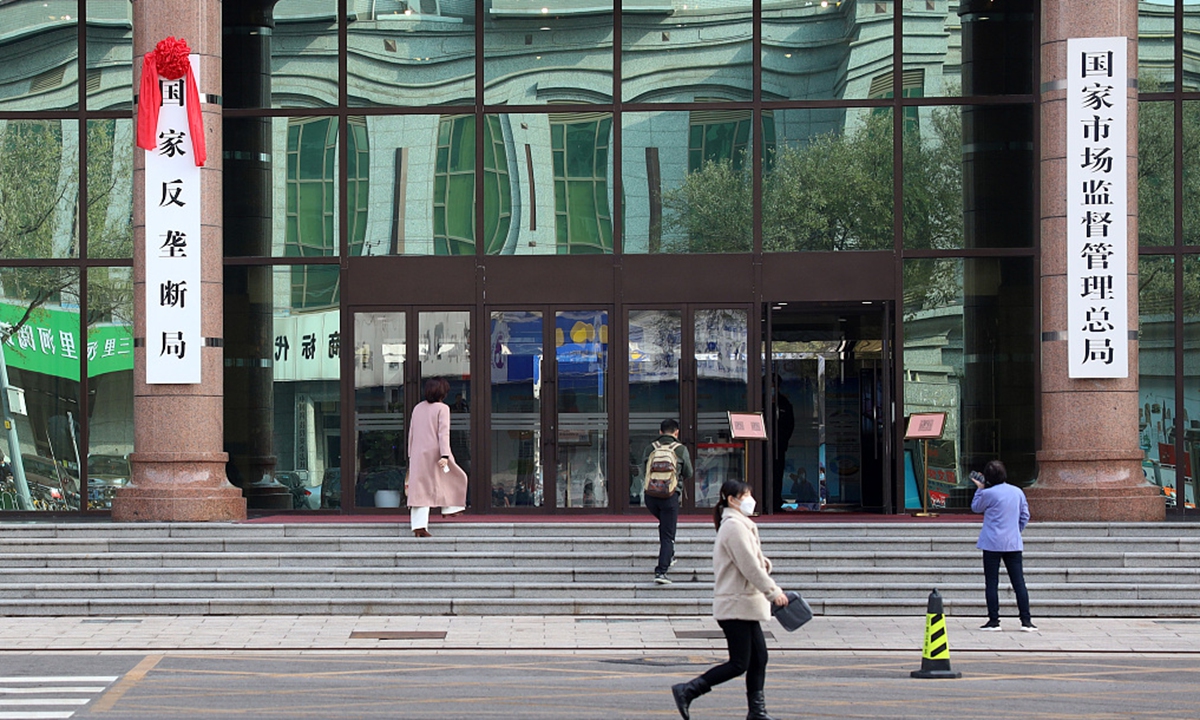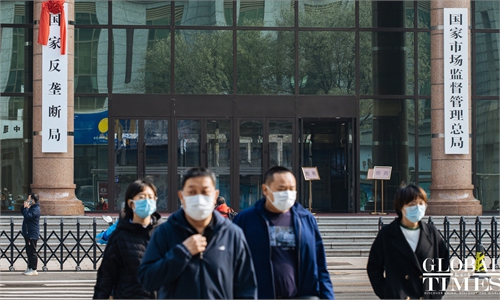China deals with 187 business monopoly cases in 2022, ensuring fairer market competition: regulator

Photo shows the nameplate of National Anti-monopoly Bureau, which is in the same building of the State Administration for Market Regulation in Beijing. Photo: CFP
China dealt with 187 cases of business monopoly in 2022 and imposed total fines worth 784 million yuan ($115.6 million), phasing in an improved system of anti-monopoly legislation and culture of fair competition, the country's top market regulator said on Thursday.
Anti-monopoly and fair competition policies were implemented at a greater level, with supervision and law enforcement in key areas constantly being strengthened, read a statement released by the State Administration for Market Regulation (SAMR).
In the year of 2022, a total of 794 cases involving over-concentration of business operation were concluded. The Anti-Monopoly Law was revised for the first time since it was promulgated 15 years ago, and first fair competition policy publicity week was successfully held, the regulator said.
In June 2022, the 35th meeting of the 13th National People's Congress (NPC) Standing Committee voted to amend the country's Anti-Monopoly Law which took effect on August 1, 2022.
The revised law has helped to establish and improve a fair competition review system, formulate better competition rules that are compatible with China's socialist market economy.
These efforts have boosted tens of thousands of market players' expectations and confidence in exploring and expanding business, spurring their competitive ability and impetus for innovation and promoting the building of a unified market place across the country, the regulator said.
In 2023, SAMR vowed to ramp up efforts to eliminate local protectionist moves and administrative manipulative measures, enhance vitality and quality of market competition, and improve the effectiveness of anti-monopoly supervision and law enforcement.
Global Times

